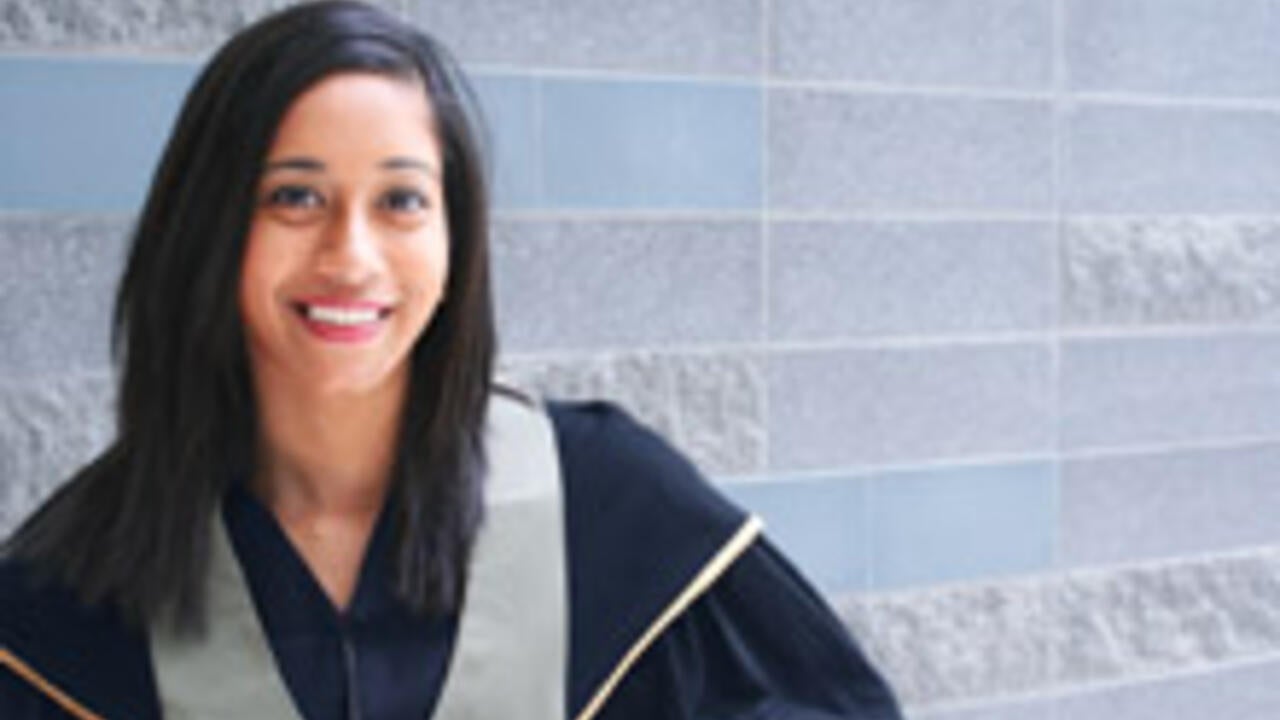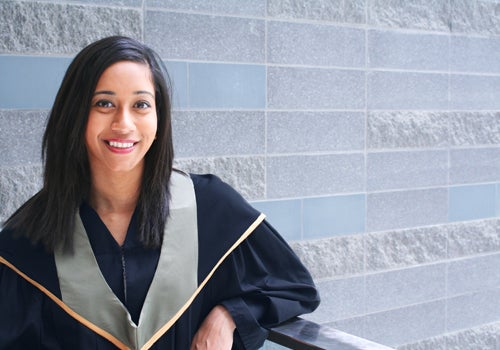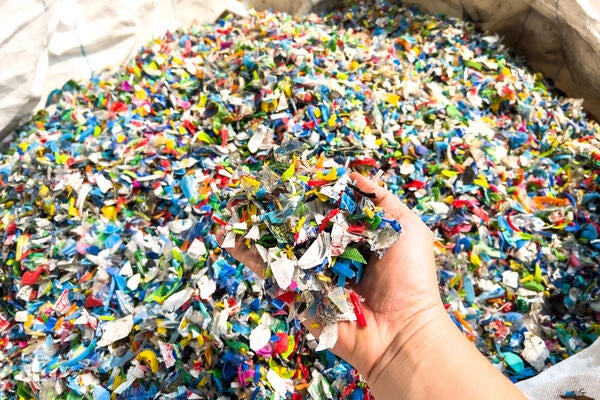
New pharmacy grad explores global health issues
Heidi Fernandes was inspired after helping to establish medical clinics in an impoverished community in Peru

Heidi Fernandes was inspired after helping to establish medical clinics in an impoverished community in Peru
By Alana Rigby School of Pharmacy
Heidi Fernandes, a graduate of Waterloo's School of Pharmacy
Ever since she travelled to Brazil on vacation, pharmacy student Heidi Fernandes has had a passion for global health. After graduation, she’ll be putting that passion into action.
“We are incredibly fortunate to have one of the best healthcare systems in the world,” said Fernandes. “And now that I’m at the end of my degree, I want to use my knowledge to not only help Canadians but also those living in communities abroad.”
Fernandes will be returning to the University of Waterloo School of Pharmacy as a graduate student in the Masters of Science in Pharmacy program. “Grad school will help me explore diseases and health concerns from around the world. I’ll be able to conduct thesis research and apply knowledge clinically at the Center for Family Medicine’s International Travel and Immunization Clinic next door to the School of Pharmacy,” she said.
In the summer of 2016 Fernandes and 20 other healthcare professionals and students travelled to Lima, Peru. The team established three medical clinics and provided free healthcare in the impoverished community of Pamplona Alta.
The experience was eye-opening for Fernandes: “The residents only receive medical attention when our team was in town. This made me feel extremely privileged to have accessible healthcare in Canada.”
As a graduate student, Fernandes will explore how pharmacists in particular can play a role in improving global health, with an emphasis on how pharmacists can help Canadian travellers.
“My ultimate objective is to identify areas for improvement in our current travel medicine practice,” said Fernandes. “I want to bridge gaps in our profession’s knowledge to increase pharmacists’ confidence in dealing with travel-related conditions.”
“Grad school will enable me to learn about diseases around the world and to combine that knowledge with my passion for global health and for pharmacy practice in Canada.”

Hand holding small pieces of cut colourful plastic bottles, which Waterloo researchers are now able to convert into high-value products using sunlight. (RecycleMan/Getty Images)
Read more
Sunlight-powered process converts plastic waste into a valuable chemical without added emissions

Dr. Travis Craddock, professor and Canada Research Chair, says the team's findings change our basic knowledge of biology (University of Waterloo).
Read more
New study reveals quantum-level effects in biology with major implications for treatment of some brain diseases

ESO 137-001, a jellyfish galaxy like the one recently observed by astrophysicists at the University of Waterloo. (Credit: NASA, ESA)
Read more
New astronomical find is 8.5 billion years old and reshapes our understanding of early cosmic evolution
The University of Waterloo acknowledges that much of our work takes place on the traditional territory of the Neutral, Anishinaabeg, and Haudenosaunee peoples. Our main campus is situated on the Haldimand Tract, the land granted to the Six Nations that includes six miles on each side of the Grand River. Our active work toward reconciliation takes place across our campuses through research, learning, teaching, and community building, and is co-ordinated within the Office of Indigenous Relations.